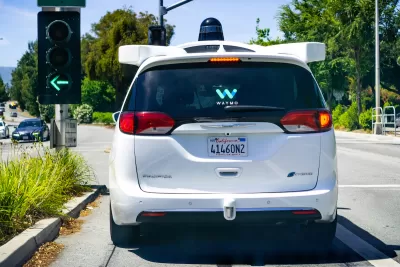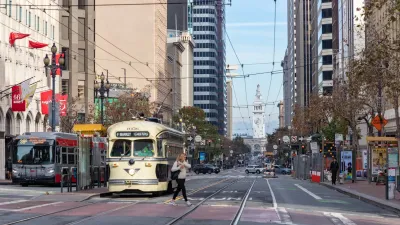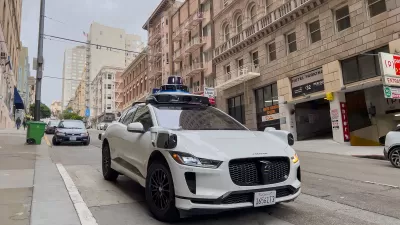Drivers for Uber and Lyft in San Francisco express their concerns and advice for self-driving taxi services.

In an interview for WIRED with 10 ride-hailing app drivers in San Francisco, Aarian Marshall and Caitlin Harrington gathered some advice to the newly minted robot drivers set to expand their presence on city streets. “Some was friendly, some not at all.”
For one, drivers say it’s sometimes necessary to ‘fudge’ the rules of the road, which robotaxis are programmed not to do (at least, not on purpose). “Rideshare passengers are spoiled,” said one driver. And having passengers run to the middle of the street to get picked up may not be safe. “When forced to choose between briefly blocking a driveway (technically a ticketable offense) and loading passengers in the middle of traffic, he’ll sometimes opt for the former.”
Drivers also wondered how autonomous cars will deal with situations when inebriated passengers soil the upholstery or fall asleep in the vehicle. “Cruise has a cleaning fee policy and charges up to $150 for ‘extensive liquid and smelly messes,’ including vomit. Waymo spokesperson Ilina says (human) workers use cameras inside the company's vehicles to determine if a cleaning is needed before or after rides, and that robotaxis are always cleaned when they return to home base for charging or maintenance.”
Other concerns include the unpredictability of city streets and the need for customer service. It remains to be seen if self-driving cars will be able to adapt to real city streets or if their limitations will render them less effective than human drivers. And while some drivers worry about the loss of income, others are looking for the next opportunity. “Some who know this is coming simply shrug—several ride-hail drivers told WIRED that they think the jobs have become too crappy to fight for, because earnings have declined over the years and there’s no reward for sticking around.”
FULL STORY: Uber and Lyft Drivers Have Some Advice for Autonomous Vehicles Set to Swarm the Streets

Maui's Vacation Rental Debate Turns Ugly
Verbal attacks, misinformation campaigns and fistfights plague a high-stakes debate to convert thousands of vacation rentals into long-term housing.

Planetizen Federal Action Tracker
A weekly monitor of how Trump’s orders and actions are impacting planners and planning in America.

In Urban Planning, AI Prompting Could be the New Design Thinking
Creativity has long been key to great urban design. What if we see AI as our new creative partner?

San Francisco Mayor Backtracks on Homelessness Goal
Mayor Dan Lurie ran on a promise to build 1,500 additional shelter beds in the city, complete with supportive services. Now, his office says they are “shifting strategy” to focus on prevention and mental health treatment.

How Trump's HUD Budget Proposal Would Harm Homelessness Response
Experts say the change to the HUD budget would make it more difficult to identify people who are homeless and connect them with services, and to prevent homelessness.

The Vast Potential of the Right-of-Way
One writer argues that the space between two building faces is the most important element of the built environment.
Urban Design for Planners 1: Software Tools
This six-course series explores essential urban design concepts using open source software and equips planners with the tools they need to participate fully in the urban design process.
Planning for Universal Design
Learn the tools for implementing Universal Design in planning regulations.
Gallatin County Department of Planning & Community Development
Heyer Gruel & Associates PA
JM Goldson LLC
Mpact (founded as Rail~Volution)
City of Camden Redevelopment Agency
City of Astoria
Jefferson Parish Government
Camden Redevelopment Agency
City of Claremont





























